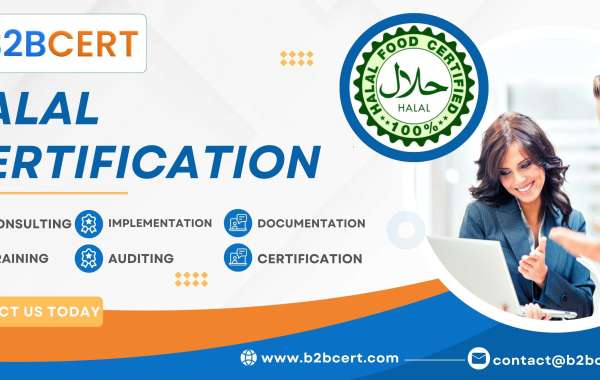Halal Certification in Jordan has become increasingly essential for organizations worldwide committed to meeting the dietary and lifestyle needs of Muslim consumers while ensuring compliance with Islamic dietary laws. Beyond mere compliance, acquiring Halal Certification signifies a strategic dedication to quality, transparency, and meeting the specific requirements of Halal standards.
Benefits of Halal Certification
Enhanced Market Access: Halal Certification assures consumers, especially Muslims, that products and services comply with Islamic dietary laws, enhancing market access and acceptance among Muslim communities globally.
Increased Consumer Confidence: Halal Certification in Zimbabwe sets organizations apart by demonstrating their commitment to meeting the religious and cultural requirements of Muslim consumers. It instills confidence in the integrity and authenticity of products and services, thereby enhancing brand reputation and credibility in the market.
Compliance and Risk Mitigation: Recognized internationally, Halal Certification ensures alignment with Halal standards and regulations. This alignment helps organizations comply with Halal requirements, mitigate risks associated with non-compliance, and safeguard against potential market exclusions.
Catering to Diverse Markets: Halal Certification enables organizations to tap into the growing Halal market, which extends beyond food products to include cosmetics, pharmaceuticals, logistics, and tourism. Certification facilitates access to diverse markets with specific Halal requirements.
Industries Benefiting from Halal Certification:
Food and Beverage Industry: Food manufacturers, restaurants, and beverage companies obtain Halal Certification in Mumbai to cater to Muslim dietary preferences and requirements. Certification ensures the integrity and Halal compliance of ingredients, processes, and handling procedures.
Cosmetics and Personal Care: Cosmetic companies seek Halal Certification to assure consumers that their products comply with Islamic principles and do not contain any prohibited ingredients. Certification enhances trust and confidence among Muslim consumers seeking Halal-compliant cosmetics and personal care items.
Pharmaceuticals and Healthcare: Pharmaceutical companies obtain Halal Certification in Nigeria for their products to assure Muslim consumers of their compliance with Islamic principles regarding ingredients and manufacturing processes. Certification demonstrates a commitment to providing Halal options in healthcare products.
Understanding the Costs of Halal Certification:
The cost of obtaining Halal Certification varies depending on factors such as the size of the organization, the complexity of product lines, and the scope of certification required. For detailed cost estimates and tailored guidance on Halal Certification services visit us at b2bcert.com organizations can contact relevant certification bodies or consultants specializing in Halal standards.
How to Connect with Halal Certification Consultants?
For expert assistance in navigating the Halal Certification in Chad process, our team of experienced consultants is dedicated to providing comprehensive support at every stage. Interested parties can connect with us through the contact form on our website at halalcertconsult.com or via email at contact@b2bcert.com Whether in food and beverage, cosmetics, or pharmaceuticals, our consultants are committed to facilitating Halal Certification and promoting excellence in meeting the needs of Muslim consumers.




